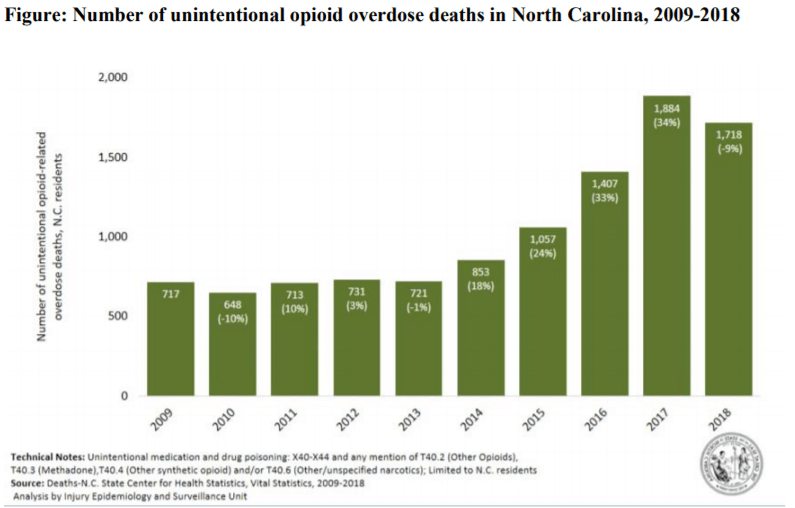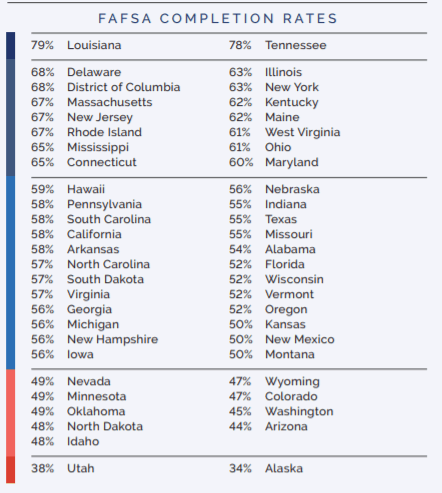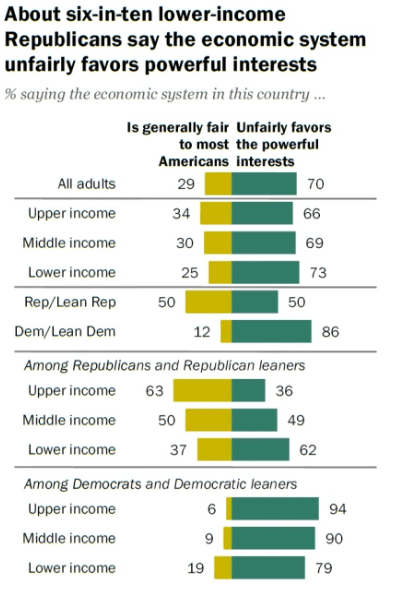In the News
With the return of the legislature this week (just for one day), the question of Medicaid expansion is back in the news, with new calls for expansion from some local conservative leaders. A study published last week by the JAMA Network shows why local leaders, especially in areas hit hardest by the opioid crisis, are supporting Medicaid expansion.
The study looked at the association between Medicaid expansion and opioid overdose deaths and found:
- Medicaid expansion was associated with a 6% lower rate of total opioid overdose deaths compared to non-expansion states’ rates.
- Counties in states that expanded Medicaid had an 11% lower rate of death involving heroin and a 10% lower rate of death involving synthetic opioids than non-expansion states.
- Expansion states had an 11% higher rate of death involving methadone overdose than non-expansion states.
Also in the news this week: State officials from North Carolina and four other states testified before a U.S. House Energy and Commerce subcommittee on their efforts to combat the opioid crisis. Kody Kinsley, deputy secretary of Behavioral Health and Intellectual and Developmental Disabilities, testified on North Carolina’s progress, saying that the state saw its first decline in five years in opioid overdose deaths in 2018 thanks to federal response grants.

Dropping Knowledge
Louisiana and Tennessee are leading the nation in getting their high school students to complete the FAFSA (Free Application for Financial Student Aid), with FAFSA completion rates at 79% and 78% respectively. North Carolina, on the other hand, falls in the middle of the pack with a 57% FAFSA completion rate.

Why does FAFSA completion matter? Ninety percent of students who complete the FAFSA directly enroll in college versus 55% of students who do not complete the FAFSA, according to a new report from Education Strategy Group and partners from the Level Up coalition. The report provides recommendations for increasing the FAFSA completion rate, including:
- Set a FAFSA completion goal tied to existing initiatives and priorities to create momentum.
- Build shared ownership across K-12 and higher education.
- Create incentives for local and regional implementation of FAFSA completion strategies.
- Use data to target supports and transparently report progress.
- Establish partnerships to provide on-the-ground training and support.
- Spread awareness about the importance of FAFSA completion.
For Your Consideration
Seven-in-ten American adults believe the U.S. economic system unfairly favors powerful interests, according to a new Pew Research Center survey released last week. When you break it down by income and political affiliation, the majority of Democrats across all income categories agree with this whereas the majority of upper income Republicans believe the economic system is generally fair.

Majorities of Republicans and Democrats believe that large corporations, health insurance companies, the wealthy, and politicians have too much power. Democrats are more likely to say that banks and financial institutions have too much power whereas Republicans are more likely to say labor unions have too much power.
What we're reading
Nurse-Family Partnership programs guide first-timers through transition to motherhood
Nurse Family Partnership programs support low-income pregnant women with home nurse visits across the nation. In 2019, the Mecklenburg program won national recognition for its outcomes.... Read the rest-
Decade After Recession, Tax Revenue Higher in 45 States
-
Report: Colleges Must Teach ‘Algorithm Literacy’ to Help Students Navigate Internet
-
How classroom technology is holding students back
-
Body Cameras May Not Be the Easy Answer Everyone Was Looking For
-
Captured carbon dioxide could be used to help recycle batteries
-
A New Bill Aims to Fix Food Waste in Schools


